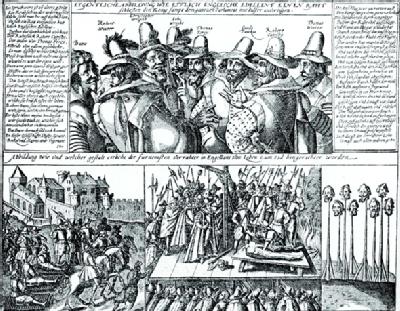Session 2 :: 14 November
The Theology Reading Group
invites you to their next session
which will take place on
14th November at 5pm
in room H543 in the Department of English and Comparative LIterary Studies
Doctrine of Equivocation
Is it possible and justifiable to deceive without lying?

The late 16th century was a trying period for English Catholics. Pope Pius V’s Regnans in Excelsis excommunicated Elizabeth I, forbidding her Catholic subjects to obey her and her officials. As a consequence, Catholic priests were declared traitors and expelled from England. If Catholic subjects wanted to celebrate Mass, they had to keep their priests well-hidden, which led to a serious moral dilemma. What would happen if authorities came and asked about them? Should they reveal their whereabouts and thus become complicit in their murder? Or should they lie about it and thus commit a mortal sin?
The Doctrine of Equivocation (or Mental Reservation) was developed as a response to this dilemma. In his commentary on the Book of Job, Moralia, Gregory the Great states that ‘The ears of men judge our words as they sound outwardly; judgement of God, however, hears them as they are brought forth inwardly’.
According to Doctor Navarrus, a renowned 16th c. Spanish theologian, this offers a way of not revealing the truth without uttering an explicit lie by giving answers with an important qualification retained (‘mentally reserved’) in the speaker’s mind. As both Protestant and Catholic theologians point out, this renders Augustine’s definition of a lie (‘to say what one knows not to be true’) practically useless. The distinction of lying and equivocation becomes an especially pressing issue in 1606, during the trial of Father Henry Garnet for complicity in the Gunpowder Plot. Garnet’s Treatise of Equivocation, in which he gives practical advice on when and how to use mental reservation, gained public (in)fame for the doctrine.
In the session, we will look at the birth of the doctrine, some examples of its application, and its first Protestant denunciation in England.
The reading for the session includes the draft of a paper prepared by the chair of the session, Máté Vince, entitled 'The Ears of Men and the Judgement of God'. If you would like to have a look at the paper, please email him at M.Vince@warwick.ac.uk.
